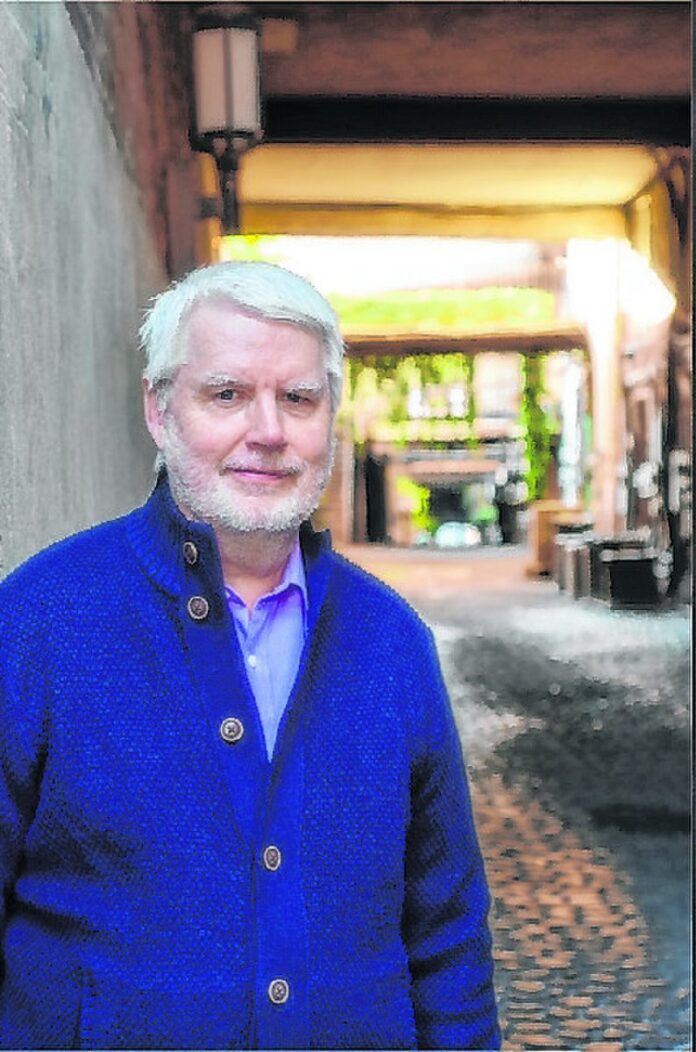Even after 20 years, the wounds are far too fresh.
The Sept. 11 terror attacks remain a horror that shattered the trajectory of the country, said David Carlson, professor emeritus at Franklin College.
The attacks didn’t just change U.S. foreign policy and domestic security; they challenged our own perception of what it meant to be an American.
“I look back at the whole experience as a trauma. It’s a tremendous shock to our understanding as Americans,” Carlson said. “It’s a trauma that we’re still caught in. We, as Americans, lived in a kind of bubble — that we were invulnerable. We were safe here.”
Carlson has carefully watched, listened and studied the ways Sept. 11 has changed us all ever since. A professor emeritus of religion and philosophy, he has written two books stemming from the question, looking at what monastic life can teach us about terrorism and how friendship between faiths can mitigate extremism in the world.
He has also been at the center of the local interfaith movement, particularly the increasingly fraught relations between Christians and Muslims.
There’s no doubt that the events of Sept. 11, 2001, impacted everyone. At the same time, the attacks offer an opportunity to learn more about ourselves and the world — even two decades later — and change the world.
“It’s a sad day, a sad memory. But my general feeling is, what can we learn from this? How can we respond in a way that heals the world rather than bring further suffering,” he said.
Like most people alive in 2001, Carlson remembers exactly where he was and what he was doing when the first plane hit the north tower at 8:45 a.m.
He was in his Franklin College office at Old Main when a colleague across the hall yelled out that an airplane had hit the World Trade Center.
“The first thought was, that is a horrible tragedy that a plane went off course and somehow hit the building,” Carlson said. “Then the phone rang, and it was my oldest son, who was living in North Dakota. He was really distraught. And while we were talking the second plane hit. That changed everything.”
With a slate of classes to teach, Carlson inquired about how to proceed with his students. College administrators asked faculty to not cancel classes, which would have just put students in their dorm rooms staring at the same footage all day.
Rather, professors were directed to use the class time to talk about the emotions everyone was going through.
“It was a way to have some kind of normalcy on a very strange day in our history,” he said.
In the following days, weeks and months, Carlson watched as the nation grieved, then shifted to retribution. He was particularly dismayed at the way people turned on the Muslim faith as a whole, instead of focusing on the extremists that perpetrated the attacks.
Carlson believes the anger that stems from the Sept. 11 attacks continues to plague the country today.
“We’re so angry, and that anger has turned outward, but also turned inward. We’re so divided. I do believe that the anger that continues in this country is one of the results of 9/11 and the need to strike back,” he said.
The more he watched, the more he resolved to study and teach a class course on the intersection of religion and violence.
“I needed to move towards that problem, rather than looking away,” Carlson said. “Even though religion and violence has been a factor in the world since the beginning of religion, I would not have taught that course without 9/11. We were trying to understand what we were caught up in in the world.”
The experience led to more questions, from students and from himself. He wanted to hear what abbots, nuns, monks and others living in monasteries and retreat centers thought about how the world had changed since Sept. 11, and where their hope lie for the world.
He traveled across the United States to visit and interview people for the book. What he found was eye-opening. The monastic interviewees revealed that in order to overcome terrorism, the world would need to help terrorists regain their humanity.
Their thoughts eventually become a book, “Peace Be With You: Monastic Wisdom For A Terror-Filled World,” which came out in 2011.
“Terrorism arises in places where people feel hopeless, where they feel the history of the world has ignored them,” Carlson said. “If terrorism has its sources in hunger and hopelessness, what can we do to change that situation?”
A second book expanded on the concept. “Countering Religious Extremism: The Healing Power of Spiritual Friendships” profiled Christians, Muslims and Jews, journeying into the way these differing faith traditions find friendship together.
The stories he found are another way to combat extremists in a healing way. Their lessons hold value still.
“As has been noted for some time, violence becomes a cycle,” Carlson said. “At some point, you have to break the cycle. You have to say you’re not going to add to the pain and suffering of the world, just because I suffered.”





